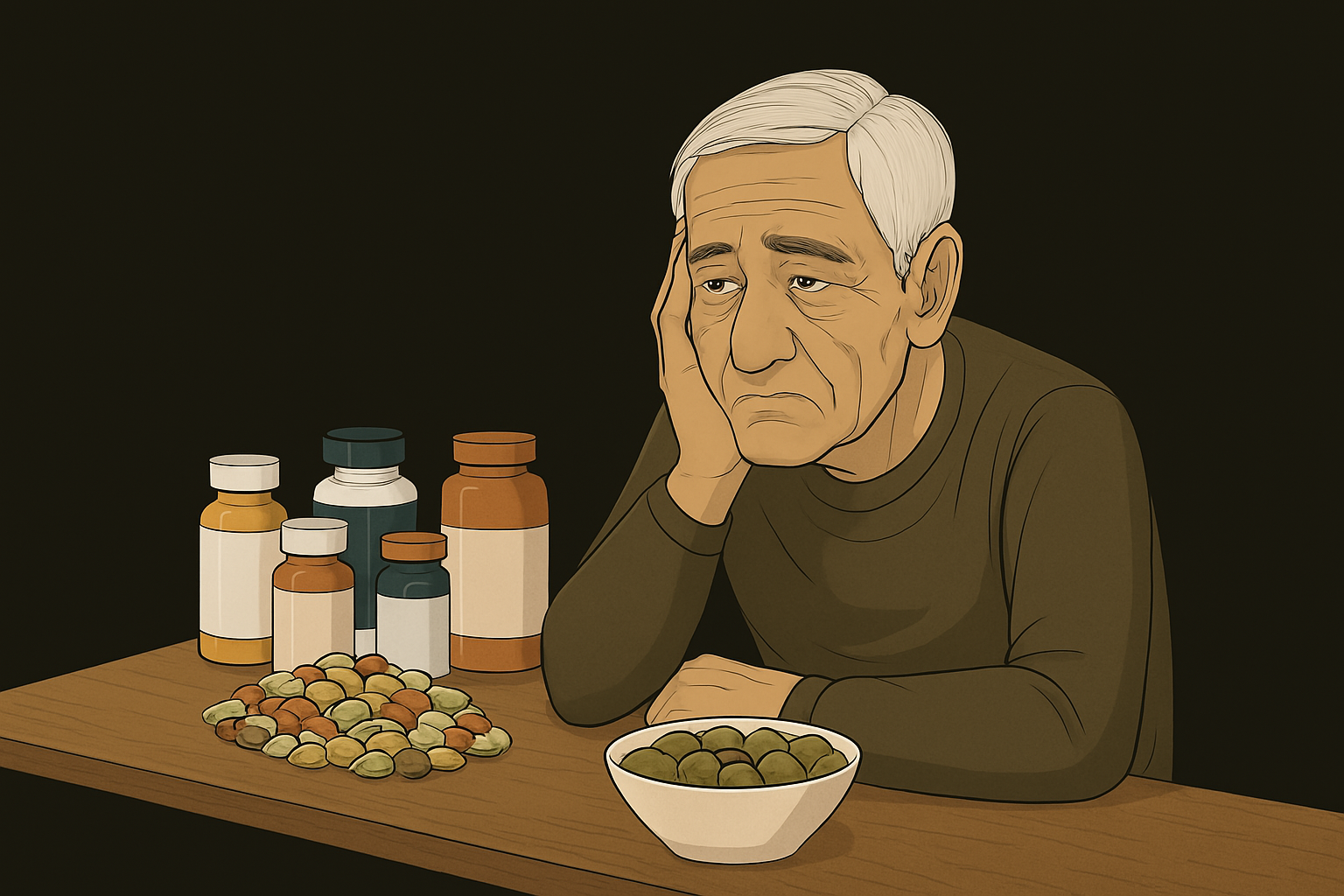As we age, our bodies undergo numerous changes — and one major shift is how we absorb nutrients from food. After 50, your digestion slows, stomach acid production drops, and vitamin absorption can decline dramatically — sometimes leading to subtle but serious nutrient deficiencies. So the question is: do you need supplements for over 50s to stay healthy and thrive? Let’s dive into the science.
Nutrient Absorption Declines with Age
Once you pass the 50 mark, your digestive system naturally loses efficiency. This has a direct impact on how well your body can process essential nutrients. Here’s what happens:
- Stomach acid production decreases, reducing absorption of vitamin B12, iron, magnesium, and calcium.
- Your skin becomes less efficient at producing vitamin D from sunlight.
- The kidneys lose their ability to convert vitamin D into its active form.
- The gut lining becomes less effective at pulling nutrients from food.
One review in The American Journal of Clinical Nutrition found that older adults are prone to subclinical deficiencies — invisible but significant nutritional gaps that may lead to health issues over time.
Common Deficiencies After 50
According to the National Institute on Aging, adults over 50 are most likely to be deficient in:
- Vitamin D
- Vitamin B12
- Calcium
- Magnesium
- Iron (especially in postmenopausal women)
- Folate and other B vitamins
These nutrients are crucial for maintaining energy, brain function, bone strength, and cardiovascular health.
What Research Says About Supplements for Over 50s
Let’s explore the studies supporting supplementation in older adults:
🦴 Vitamin D & Calcium
Supplementing with vitamin D and calcium helps reduce fracture risk and supports bone health. After 50, your body can’t rely on food and sunlight alone to meet its needs.
🧠 Vitamin B12
Because stomach acid drops with age, B12 absorption falls dramatically. Supplementing with tablets or sprays can help prevent fatigue, nerve problems, and brain fog.
🧠 Multivitamins & Memory
A 2-year clinical trial published in The American Journal of Clinical Nutrition showed that a daily multivitamin improved memory and cognition in older adults.
😴 Magnesium
Low magnesium is linked to high blood pressure, poor sleep, and even type 2 diabetes. Unfortunately, absorption decreases with age — so supplements help bridge the gap.
Why Food Alone Might Not Be Enough After 50
While a healthy diet is essential, it might not be sufficient on its own. Here’s why:
- Reduced appetite or medical issues can lead to under-eating
- Digestive changes limit nutrient absorption
- Medications may interfere with key vitamins
- Taste and smell changes reduce dietary variety
In short, even healthy eaters over 50 often fall short nutritionally — which is where supplements for over 50s become essential.
Best Supplements for Over 50s
Healthcare professionals often recommend:
- Vitamin D3 (often combined with K2)
- Vitamin B12 (methylcobalamin or cyanocobalamin)
- Magnesium (preferably glycinate or citrate)
- Calcium (with magnesium for better absorption)
- Omega-3 fatty acids
- Multivitamins designed for over-50s
Always consult your doctor before starting new supplements, especially if you take prescription medications.
Final Thoughts: Supplements Are a Smart Move — Not a Shortcut
Taking supplements for over 50s isn’t about replacing food — it’s about covering gaps that your changing body struggles to fill. Think of it like maintenance fuel for your engine.
Give your body the tools it needs to age with energy, strength, and clarity. Supplements won’t make you invincible — but they can help you feel a whole lot better for longer.
🔍 Explore More
Want to know which products are worth it? We’ve reviewed top options on nobullhealthfoods.com:
Magnesium Guide for Older Adults

👉 Like this article? Share it on Facebook 💬
➡️ Join our private Facebook group here! [Join Now]

Leave a Reply